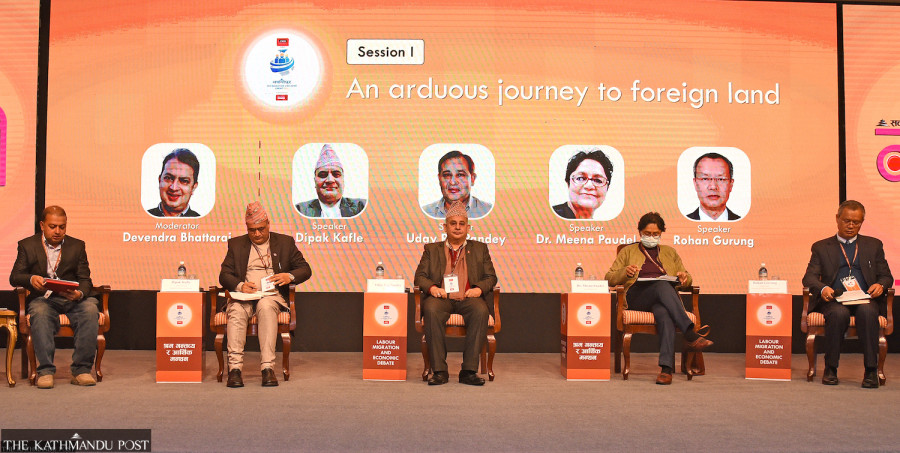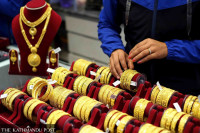Money
Experts urge providing incentives to remittance senders to use banks
Officials suspect that large sums of money are being diverted through informal channels using cash bonuses.
Prithvi Man Shrestha
The government may need to set aside as much as Rs30 billion to incentivise Nepali migrant workers to send remittance home through formal channels, a top central bank official said.
Remittance inflows have been dropping sharply from the beginning of the current fiscal year, and alarmed stakeholders are calling for providing inducements to migrant workers sending money home to use legal financial systems.
Remittance is the largest source of foreign exchange for the country, and officials suspect that large sums of money are being diverted through informal channels using cash bonuses.
Nepal Rastra Bank Governor Maha Prasad Adhikari said that the central bank had received information from some stakeholders that migrant workers were being provided incentives of as much as Rs3 per dollar to lure them away.
As of the first four months of the current fiscal year, remittance inflows fell by 7.5 percent to Rs312.42 billion, according to Nepal Rastra Bank. A reduction in the inflow of remittance along with surging imports has led to a sharp depletion of foreign exchange reserves, according to the central bank.
Speaking at the IME Migration and Remit Summit 2021 organised by the Kantipur Media Group, Governor Adhikari said, “Considering that the country received remittances amounting to over Rs900 billion in the last fiscal year 2020-21, the government and Nepal Rastra Bank may need to set aside between Rs27 billion and Rs30 billion for compensation only.”
According to a World Bank report, the Bangladeshi and Pakistani governments had introduced remittance tax incentives in 2019 and 2020 when faced with the same problem.
Stating that the central bank was studying the possibility of incentivising the inflow of remittances through formal channels, Adhikari asked whether such a move would be sustainable and whether it would be successful in redirecting remittance inflows to formal channels. “Besides certain incentives, administrative measures may be required as well,” he said.
The central bank and government officials suspect that remittances are being used to import gold illegally. In recent weeks, the government has been seizing gold brought as jewellery weighing more than 50 gm.
According to a World Bank report, the cost of sending remittances home is the lowest in South Asia compared to other regions. In South Asia, the fee is 4.6 percent on average compared to the global average of 6.4 percent.
One of the targets of the Sustainable Development Goals is to reduce this cost to 3 percent. But informal channels like hundi are being used to transfer money.
Chandra Dhakal, senior vice-president of the Federation of Nepalese Chambers of Commerce and Industry, stressed that the government and central bank needed to incentivise the Nepali diaspora to send remittances through formal channels as the inflow has been slowing.
“In the past, remittances were growing every year, and no thought was given to providing incentives; and now the situation has changed,” he said.
Besides promoting money transfers through formal channels, he also stressed the need to send skilled workers to the destination countries to boost remittances.
Remittances are important for the Nepali economy not only in terms of foreign exchange reserves but as livelihoods for many Nepalis.
Nepal received remittances equivalent to around 25 percent of the country's gross domestic product (GDP) in the fiscal year 2020-21 which is the highest in South Asia, according to the World Bank report entitled "Migration and Development Brief" released in November.
Besides bringing remittance inflows into the formal channel, the panellists also insisted on utilising the money entering the country in income generating activities and infrastructure development.
The government has introduced schemes like foreign employment bonds and remit hydro to mobilise remittances for the development effort. But there has been little interest in these plans.




 22.26°C Kathmandu
22.26°C Kathmandu













